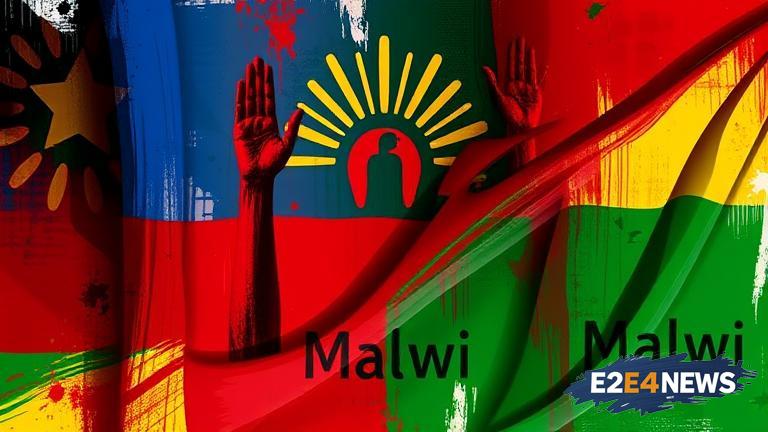In a shocking display of disregard for the law, major political parties in Malawi have refused to disclose their funding sources, despite being required to do so by the country’s electoral laws. This lack of transparency has raised serious concerns over the potential for corruption and the influence of external forces on the country’s political landscape. The Electoral Commission of Malawi has expressed frustration over the parties’ failure to comply with the law, citing the importance of transparency in maintaining the integrity of the electoral process. The commission has warned that failure to disclose funding sources could lead to serious consequences, including fines and even deregistration. However, the parties seem unfazed by these warnings, with some arguing that their funding sources are ‘private’ and therefore not subject to public scrutiny. This argument has been dismissed by critics, who point out that political parties are public institutions that should be accountable to the people. The issue has sparked a heated debate over the role of money in politics, with some arguing that the lack of transparency is a recipe for corruption and others arguing that it is necessary to protect the parties’ financial interests. The Democratic Progressive Party (DPP), the Malawi Congress Party (MCP), and the United Democratic Front (UDF) are among the parties that have been accused of failing to disclose their funding sources. The parties’ refusal to comply with the law has been condemned by civil society organizations, who argue that it undermines the country’s democratic principles. The issue has also sparked concerns over the potential for foreign interference in Malawi’s politics, with some arguing that external forces may be using funding to influence the country’s electoral outcomes. The Electoral Commission of Malawi has vowed to take action against the parties, but it remains to be seen whether they will be able to enforce the law. In the meantime, the lack of transparency continues to erode trust in the country’s political institutions. The issue is not unique to Malawi, with many countries around the world struggling to regulate the flow of money in politics. However, the country’s electoral laws are clear: parties must disclose their funding sources in order to maintain transparency and accountability. The failure of the parties to comply with the law has serious implications for the country’s democracy, and it remains to be seen how the situation will be resolved. The government has been accused of failing to take decisive action against the parties, with some arguing that they are complicit in the lack of transparency. The opposition has seized on the issue, using it to attack the government’s credibility and argue for greater transparency in the electoral process. The debate over funding sources is likely to continue, with no clear resolution in sight. The country’s electoral laws are in need of reform, with many arguing that they are inadequate and poorly enforced. The issue has sparked a wider debate over the role of money in politics, with some arguing that it is a necessary evil and others arguing that it is a corrupting influence. The lack of transparency has serious implications for the country’s democracy, and it remains to be seen how the situation will be resolved. The Electoral Commission of Malawi has a critical role to play in enforcing the law and maintaining transparency, but it will require the cooperation of the parties to succeed. The country’s civil society organizations will also play a crucial role in holding the parties to account and advocating for greater transparency. The issue is a complex one, with many different perspectives and interests at play. However, one thing is clear: the lack of transparency in Malawi’s political funding is a serious problem that needs to be addressed. The country’s democracy depends on it, and it is up to the parties, the government, and the Electoral Commission to ensure that the law is enforced and transparency is maintained.
